




The spin cycle of a washing machine can be quite noisy, causing disruption and annoyance. There are several causes for a noisy spin cycle, but luckily, there are also various solutions to quieten it down. In this article, we will explore some common causes of a noisy spin cycle and provide practical solutions to help you enjoy a more peaceful laundry experience.
One of the potential causes of a noisy spin cycle is an unbalanced load. When the laundry inside the drum is unevenly distributed, it can cause the washing machine to vibrate excessively and make noise. To fix this issue, try redistributing the clothes inside the drum to create a more balanced load. Additionally, make sure to follow the manufacturer’s guidelines regarding load capacity.
Another possible cause of a noisy spin cycle is worn or damaged drum bearings. Over time, these bearings can become worn out or damaged, resulting in a loud grinding or squeaking noise during the spin cycle. If you suspect the drum bearings are the cause, it is recommended to consult a professional technician to replace them.
In some cases, a noisy spin cycle can be attributed to a faulty suspension system. The suspension system is responsible for supporting the drum and absorbing vibrations. If the suspension system is worn out or damaged, it can cause excessive movement and noise during the spin cycle. Contacting a professional technician is advised to diagnose and resolve any issues with the suspension system.
Noise in the Washing Machine Spin Cycle: Understanding the Problem
In the spin cycle of a washing machine, noise can be quite common. This can be annoying and concerning for many homeowners. Understanding the causes of the noise and finding appropriate solutions is crucial to ensure a quiet and efficient washing machine spin cycle.
Common Causes of Noise in the Spin Cycle
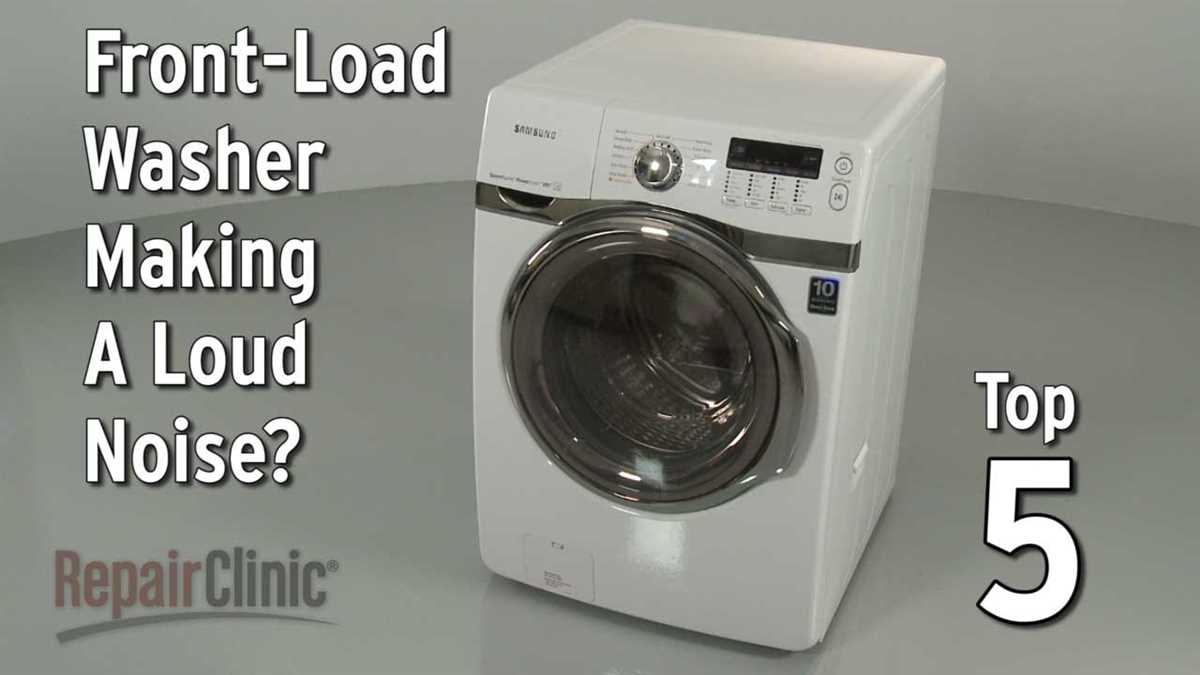
- Unbalanced Load: One of the most common causes of noise in the spin cycle is an unbalanced load. When clothes are unevenly distributed in the drum, the machine becomes off-balance, leading to excessive noise and vibration.
- Loose or Worn Drive Belt: A loose or worn drive belt can cause noise during the spin cycle. If the belt is not properly aligned or has become worn, it may produce a squealing or grinding noise.
- Worn Drum Bearings: Over time, drum bearings can wear out, causing a loud noise during the spin cycle. This issue usually occurs in older washing machines and requires professional repair or replacement.
- Foreign Objects: Occasionally, small objects like coins or buttons can get stuck in the drum or pump, causing noise during the spin cycle. It is advisable to check the drum and pump regularly to prevent this issue.
Solutions to Reduce Noise in the Spin Cycle
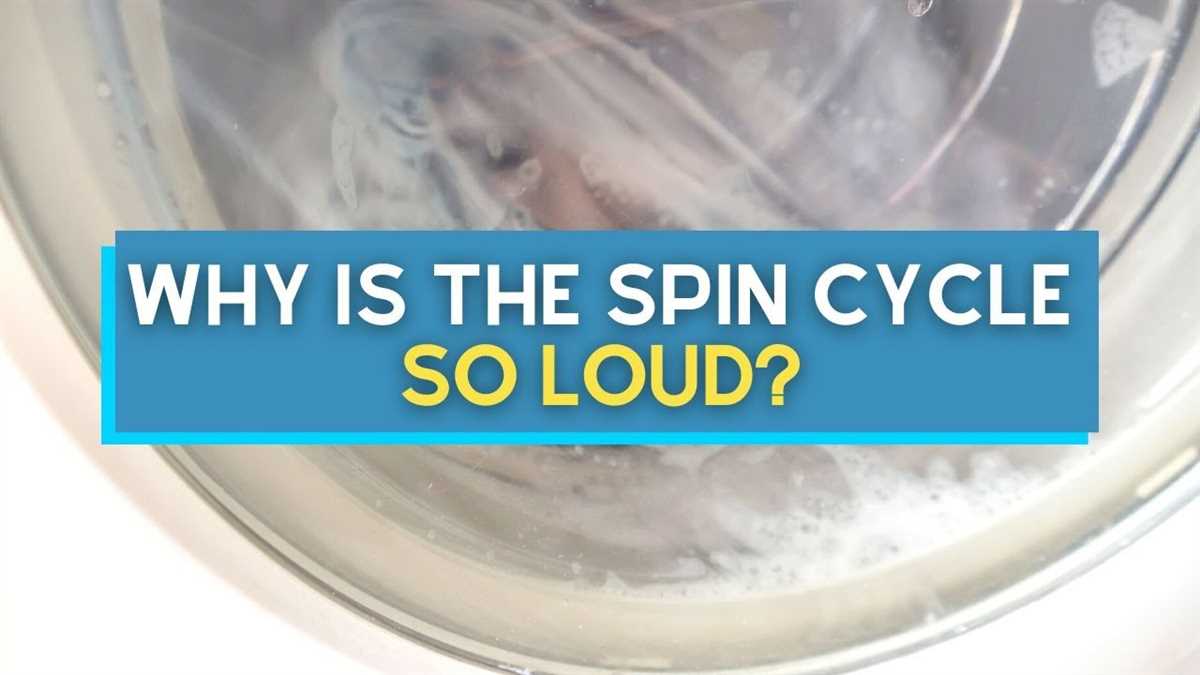
To reduce noise in the washing machine spin cycle, consider the following solutions:
- Balance the Load: Ensure that the load is evenly distributed in the drum before starting the spin cycle. Overloading the machine can increase noise and vibration.
- Tighten or Replace the Drive Belt: If the drive belt is loose or worn, it may need to be tightened or replaced. Consult the manufacturer’s manual or seek professional help for this task.
- Address Worn Drum Bearings: If you suspect worn drum bearings, contact a professional appliance technician to inspect and replace them if necessary.
- Check for Foreign Objects: Regularly inspect the drum and pump for any foreign objects that may be causing noise. Remove any debris if found.
By addressing the common causes of noise in the washing machine spin cycle and implementing the recommended solutions, you can enjoy a quieter laundry experience and prolong the lifespan of your machine.
Unbalanced Load: Causes and How to Fix
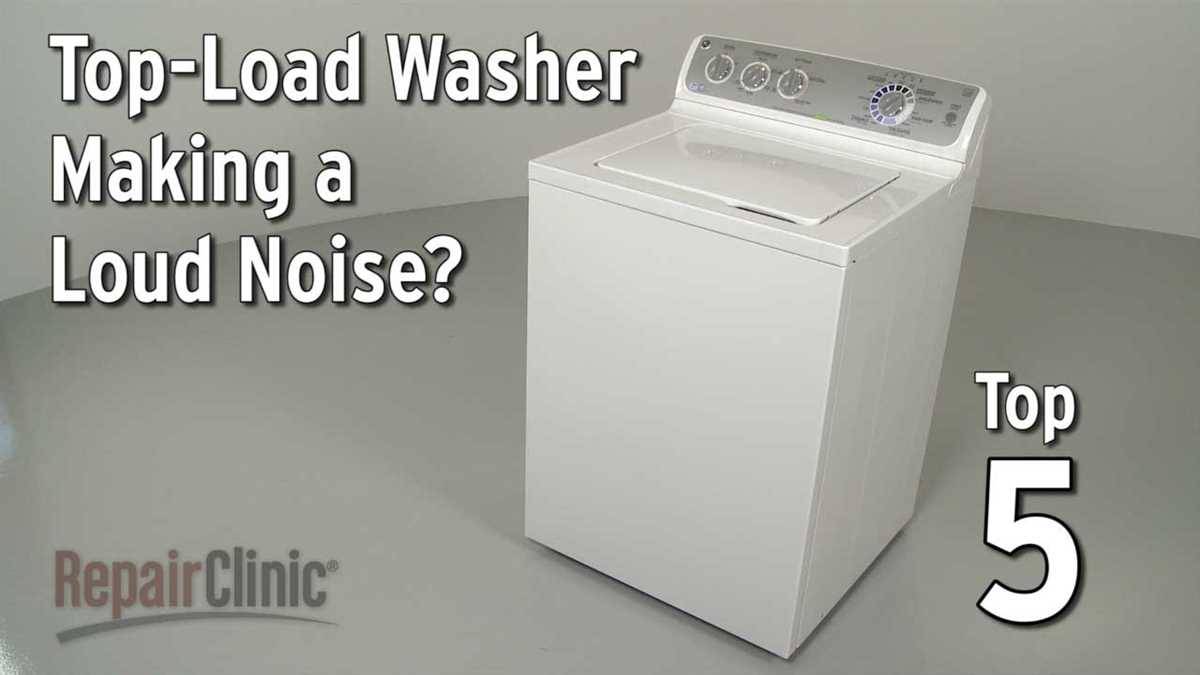
An unbalanced load is a common cause of excessive noise during the spin cycle of a washing machine. When the clothes inside the drum are not properly distributed, the machine can become imbalanced, causing it to vibrate and make loud noises.
Causes:
- Uneven distribution of clothes: If the weight of the clothes is not evenly distributed inside the drum, it can create an unbalanced load.
- Large items: Washing large items, such as blankets or heavy jeans, can also cause an unbalanced load due to their weight and size.
- Overloading the machine: Putting too many clothes in the washing machine can lead to an unbalanced load.
How to Fix:
- Open the machine: If you suspect an unbalanced load, stop the spin cycle and open the machine.
- Reposition the clothes: Check the load and redistribute the clothes evenly inside the drum. Make sure there are no clumps of clothes on one side.
- Remove heavy items: If there are any heavy items, take them out and wash them separately.
- Remove excess clothes: If the washing machine is overloaded, remove some clothes to create a balanced load.
- Run the spin cycle again: Once you have balanced the load, close the machine and run the spin cycle again to check if the noise has been reduced.
If the problem persists, it may be necessary to consult a professional or contact the manufacturer for further assistance.
Worn Out or Loose Drive Belt: How to Identify and Replace
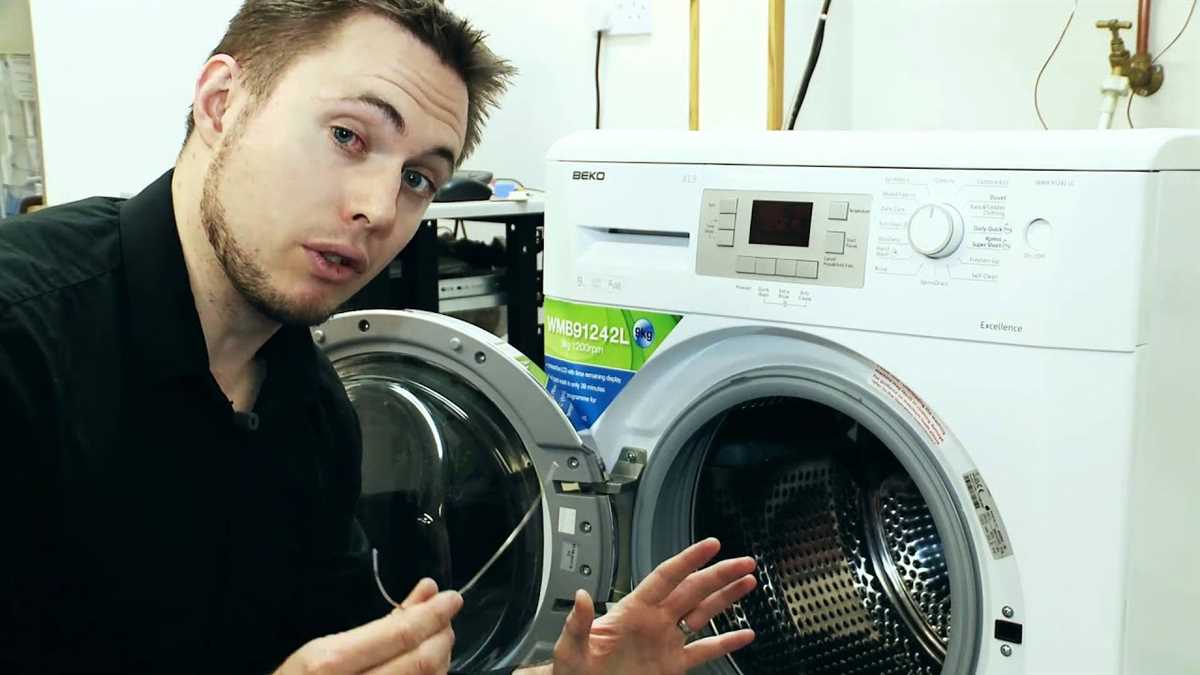
If your washing machine makes a loud noise during the spin cycle, one possible cause could be a worn out or loose drive belt. The drive belt is responsible for turning the drum of the washing machine, and over time, it can become stretched, worn out, or loose.
Identifying a Worn Out or Loose Drive Belt
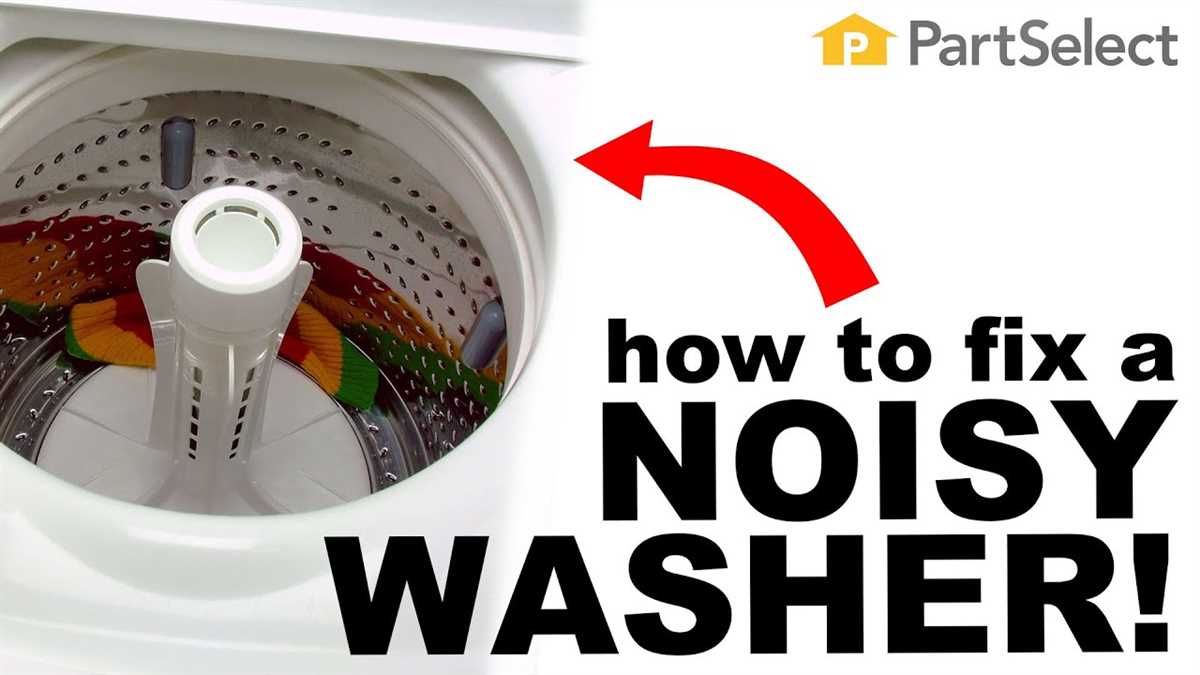
Here are some signs that your washing machine’s drive belt may be worn out or loose:
- Loud banging or thumping noises during the spin cycle
- The drum doesn’t spin or spins slowly
- Visible signs of wear or damage on the drive belt
If you notice any of these signs, it’s likely that your washing machine’s drive belt needs to be replaced.
Replacing the Drive Belt
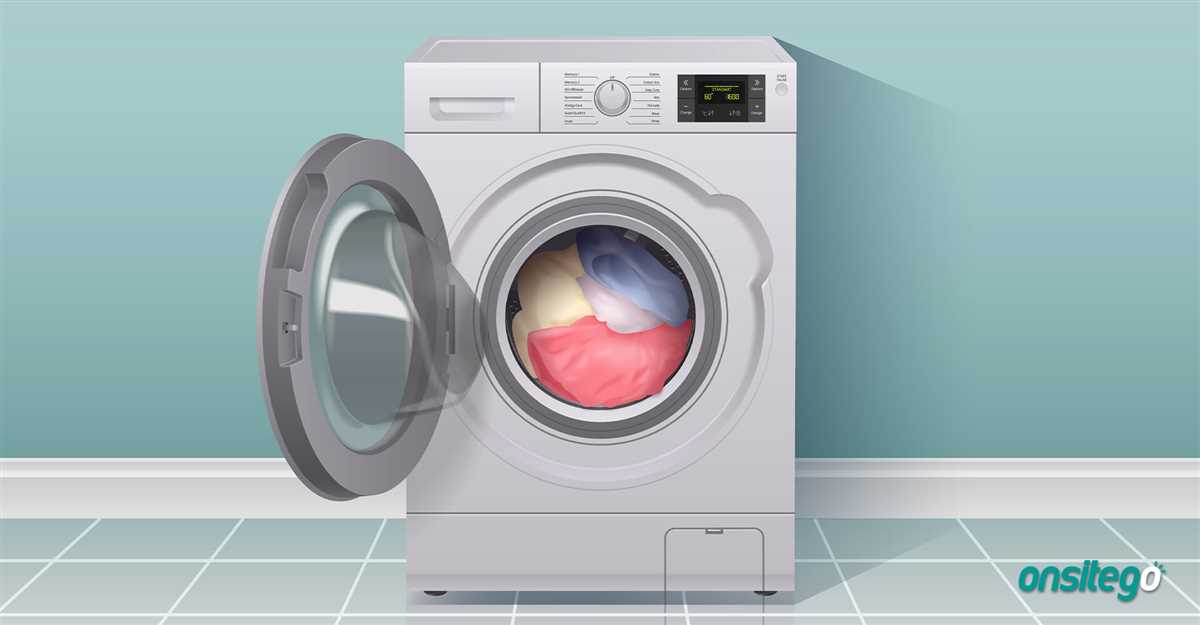
- Unplug the washing machine from the power source.
- Locate the drive belt on the bottom or back of the washing machine.
- Inspect the drive belt for any signs of wear or damage. If it looks worn out or stretched, it will need to be replaced.
- Refer to the washing machine’s manual or the manufacturer’s website for specific instructions on how to remove and replace the drive belt. Each model may have slightly different instructions.
- Once you have the new drive belt, carefully install it according to the instructions provided. Make sure it is properly aligned and tightened.
- Plug the washing machine back into the power source and test the spin cycle to ensure that the new drive belt is working properly.
If you are unsure about replacing the drive belt yourself, it is recommended to consult a professional technician or contact the manufacturer for assistance.
By replacing a worn out or loose drive belt, you can help reduce the noise during the spin cycle and ensure that your washing machine continues to function effectively.
Shock Absorbers: Troubleshooting and Troubleshooting
Shock absorbers are an important component in a washing machine as they help to reduce vibrations during the spin cycle. However, if your washing machine is making loud noises or shaking excessively during the spin cycle, it could be a sign of a problem with the shock absorbers.
Common Problems with Shock Absorbers:
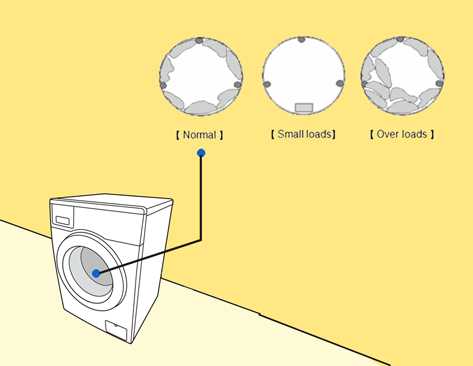
- Worn or Damaged Shock Absorbers: Over time, the shock absorbers in your washing machine can wear out or become damaged. This can result in excessive vibrations and noise during the spin cycle.
- Loose or Misaligned Shock Absorbers: If the shock absorbers are not properly installed or tightened, they may become loose or misaligned. This can cause the washing machine to shake or vibrate excessively.
Troubleshooting and Solutions:
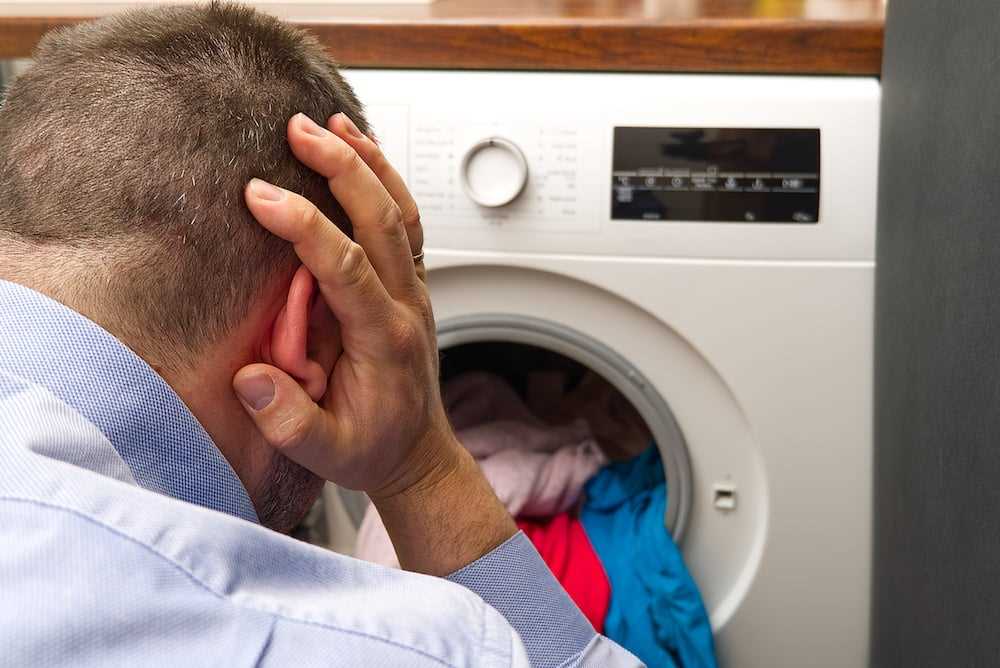
If you suspect that the shock absorbers in your washing machine are causing the noise and vibrations during the spin cycle, here are some troubleshooting steps you can take:
- Check for visible signs of damage: Inspect the shock absorbers for any signs of wear or damage, such as cracks or leaks. If you notice any damage, the shock absorbers may need to be replaced.
- Tighten or realign the shock absorbers: If the shock absorbers are loose or misaligned, you can try tightening or realigning them. Refer to the manufacturer’s instructions for guidance on how to properly adjust the shock absorbers.
- Replace the shock absorbers: If the shock absorbers are worn out or damaged, they will need to be replaced. Consult the washing machine’s manual or contact the manufacturer for specific replacement instructions.
It’s important to note that if you are not comfortable troubleshooting or repairing the shock absorbers yourself, it’s best to contact a professional appliance repair technician. They will have the necessary knowledge and expertise to diagnose and fix any issues with the shock absorbers in your washing machine.
Conclusion:
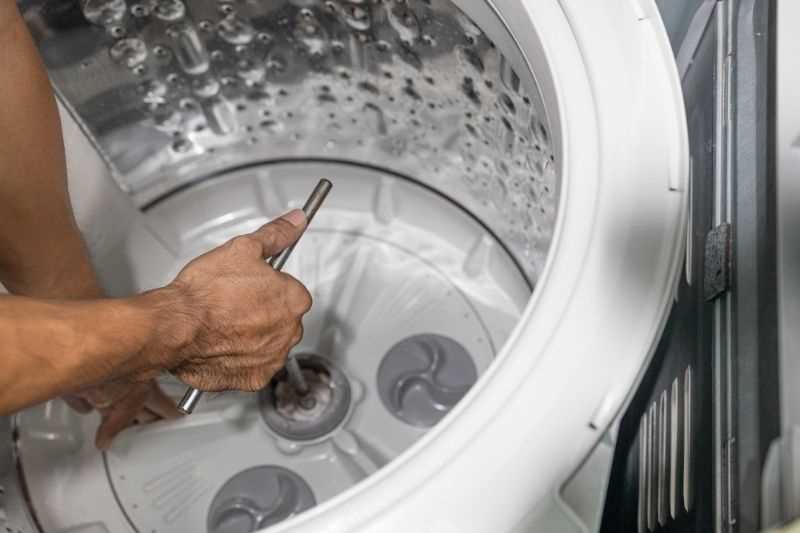
Shock absorbers play a crucial role in reducing vibrations and noise during the spin cycle of a washing machine. If you notice excessive vibrations or loud noises coming from your washing machine, it’s likely there is a problem with the shock absorbers. By following the troubleshooting steps mentioned above, you can identify and resolve issues with the shock absorbers, restoring quiet and smooth operation to your washing machine.
Motor Mounts: Causes of Noise and How to Fix
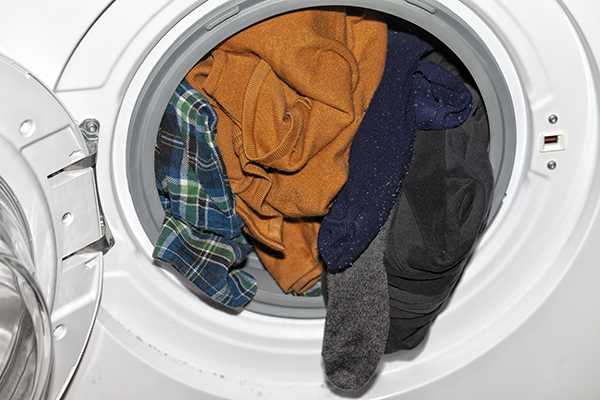
Motor mounts are essential components of a washing machine that hold the motor in place and help reduce vibrations and noise during the spin cycle. However, over time, these mounts can wear out or break, leading to excessive noise during operation. Here are some common causes of motor mount noise and how you can fix them:
- Worn-out or damaged motor mounts: Over time, the rubber or foam material in motor mounts can deteriorate or break, causing the motor to vibrate excessively and produce noise. To fix this issue, you will need to replace the worn-out motor mounts with new ones. Consult your washing machine’s instruction manual or contact the manufacturer for specific instructions on replacing motor mounts.
- Loose motor mounts: Sometimes, motor mounts can become loose due to constant vibration and movement. This can result in a rattling or banging noise during the spin cycle. To fix this issue, you can try tightening the motor mounts using a wrench or screwdriver. Refer to your washing machine’s instruction manual for the specific tightening instructions.
- Imbalanced load: If the noise occurs only when the washing machine is overloaded or if the load inside the drum is unevenly distributed, it may not be a motor mount issue. In this case, redistribute the load evenly and ensure that the washing machine is not overloaded. This should help reduce noise during the spin cycle.
It is important to address motor mount noise as soon as possible, as excessive vibrations and noise can cause further damage to the washing machine’s components and reduce its overall lifespan. Regular inspection and maintenance of motor mounts can help prevent issues and ensure a quieter washing machine spin cycle.
FAQ
Why is my washing machine making a loud noise during the spin cycle?
There are several possible causes for a loud noise during the spin cycle. It could be due to an unbalanced load, loose or worn out parts, or a problem with the motor. To determine the exact cause, it is recommended to inspect the machine and call a professional if necessary.
What should I do if my washing machine is vibrating excessively during the spin cycle?
If your washing machine is vibrating excessively, it is likely due to an unbalanced load. Make sure to distribute the laundry evenly in the drum and adjust the feet of the machine to ensure it is level. If the problem persists, you may need to check for any loose or worn out parts.
How can I fix a squeaking noise coming from my washing machine during the spin cycle?
A squeaking noise during the spin cycle may indicate a problem with the belt or the motor of the washing machine. To fix this issue, you can try lubricating the belt or replacing it if necessary. If the noise persists, it is recommended to consult a professional technician for further assistance.
Is there a way to reduce the noise of my washing machine during the spin cycle?
Yes, there are a few steps you can take to reduce the noise of your washing machine during the spin cycle. First, make sure the machine is level by adjusting the feet. You can also place a rubber mat or vibration pads under the machine to absorb some of the vibrations. Additionally, it is important to clean the machine regularly and check for any loose parts that may be causing the noise.
What are some common solutions for a loud washing machine spin cycle?
Some common solutions for a loud washing machine spin cycle include redistributing the laundry to ensure an even load, checking for any loose or worn out parts and tightening or replacing them if necessary, and ensuring the machine is level by adjusting the feet. Regular maintenance, such as cleaning the machine and checking for any debris or blockages, can also help prevent loud noises during the spin cycle.
Why is my washing machine so loud during the spin cycle?
If your washing machine is loud during the spin cycle, it could be due to several reasons. One common cause is an unbalanced load inside the drum. Make sure you distribute the clothes evenly inside the machine before starting the cycle. Another possible cause is worn-out drum bearings. Over time, the bearings can become defective and cause noise during the spin cycle. If this is the case, you may need to replace the drum bearings.
What can I do to reduce the noise during the spin cycle?
If you want to reduce the noise during the spin cycle, there are a few things you can try. First, make sure that the machine is level. Use a bubble level to check if it is sitting on a flat surface. If it’s not level, adjust the feet of the washing machine until it becomes stable. Another solution is to use anti-vibration pads. These pads can be placed under the feet of the machine and help to absorb vibrations, reducing noise. If the noise persists, you may need to call a professional to inspect the machine and fix any internal issues.












